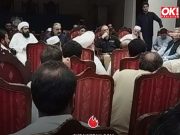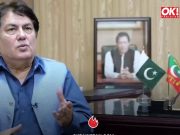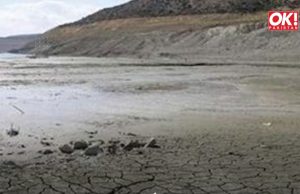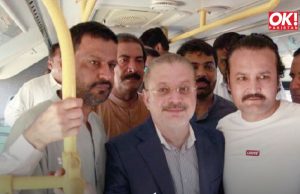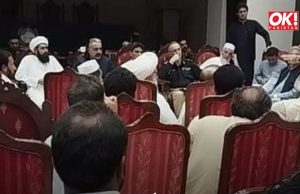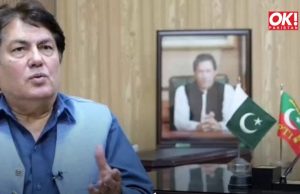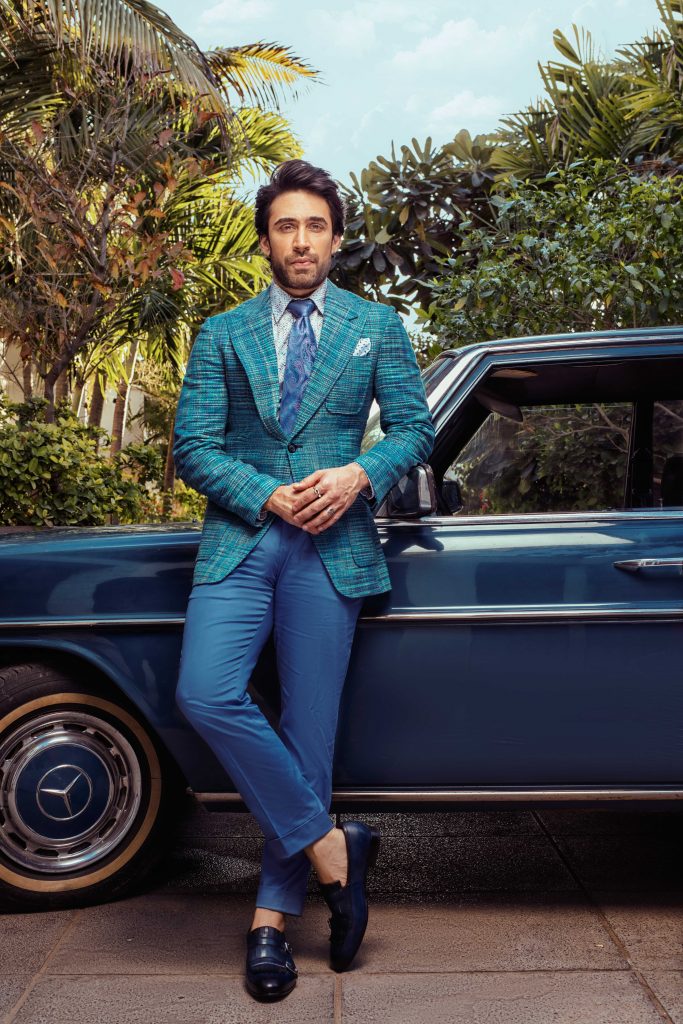 The on-screen sensation, Ali Rehman, made his debut in the highly controversial film Slackistan. He has done several films in a short span of time, including a lead role in Janaan alongside Armeena Khan and Bilal Ashraf. He has also acted in Parchi and Heer Maan Ja, both alongside Hareem Farooq.
The on-screen sensation, Ali Rehman, made his debut in the highly controversial film Slackistan. He has done several films in a short span of time, including a lead role in Janaan alongside Armeena Khan and Bilal Ashraf. He has also acted in Parchi and Heer Maan Ja, both alongside Hareem Farooq.
Born in Islamabad, the actor received his postgraduate degree from the University of London and went on to pursue a career in acting after performing in theatre. He made his debut in the television industry with the hit drama series Rishtay Kuch Adhooray Se, which earned him the HUM Award for Best New Television Sensation Male, followed by Muhabbat Ab Nahi Hogi and Diyar-e-Dil, which received an overwhelmingly positive response. He also received the HUM Award for Best Supporting Actor in 2016 for Diyar-e-Dil.
His acting prowess – be it in theatre, television or film – has been widely appreciated by the masses and his good looks are the proverbial cherry on top. The actor’s on-screen and off-screen display of humour, charisma and passion for his profession have already landed him three films. The talented actor tells us his hands are full at the moment and with Wajahat Rauf’s next project already creating a buzz all over social media, he hopes to deliver with a bang and leave an impact on the audiences.
“I’ve wanted to be an actor for as long as I can remember. It’s not something I just stepped into randomly or by coincidence, but something I have dreamt of becoming ever since I was eight or nine years old”, you once said in an interview. Are you happy with the way your career is shaping up? Are you satisfied doing the genre of films you have done?
Ali Rehman: It’s true, I’ve wanted to be an actor for as long as I can remember. My obsession with Superman was what sparked my obsession with being in the movies. That’s where it started and there is nothing more that I have wanted to be. Being an actor was always the first answer I had when asked what I wanted to be when I grow up. First off, I am just so grateful to God for being able to do in my career what I always wanted to. I feel so blessed to have that privilege. I’ve worked very hard to be where I am and I’ve given up a lot to be here, so yes, I am absolutely satisfied with how my career is going.
Every day is a new surprise and I just take it one day at a time. I’m very blessed to have done four films, and this year it will be five. The actor in me will always want to do different films, tell different stories, but I’m happy that I’ve been able to do films that are very different from each other. I’m ready to do more!
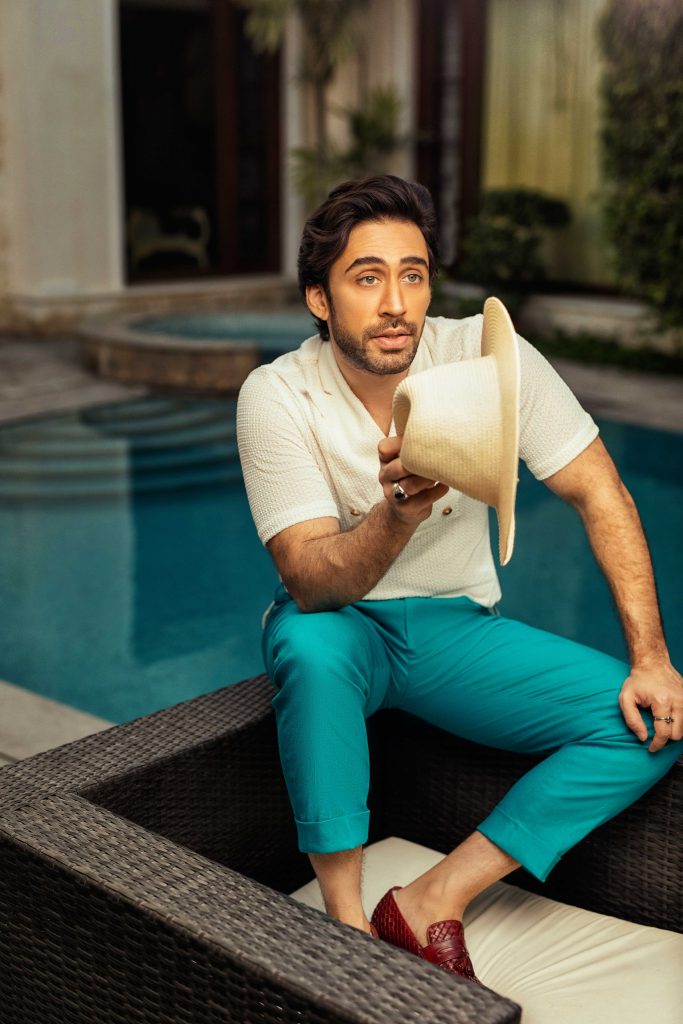 What made you do the roles in Parchi and Heer Maan Ja? Did you consciously decide not to choose roles depicting larger-than-life heroes, doing more believable cinema instead?
What made you do the roles in Parchi and Heer Maan Ja? Did you consciously decide not to choose roles depicting larger-than-life heroes, doing more believable cinema instead?
AR: I think “believable cinema” can have “larger-than-life” heroes too. There are so many stories taken from true life events that are based on larger-than-life characters who inspire us, make us happy, make us cry. There are stories that make us root for the underdog and there are stories that captivate one’s imagination. Cinema itself is larger-than-life and a gateway to your imagination and that’s the beauty of it. This is the era where audiences connect with believable cinema because they see a regular person do amazing things, which makes the character the audience’s champion.
What I like about our cinema these days is that even though they are fictional characters, the stories are grounded in some sort of reality. That being said, as an actor, I try to do something different each time in the characters I play; I try to reinvent myself. In Parchi and Heer Maan Ja, my characters were very different from each other; I wanted to keep them far apart from one another and I try to do that with every role I take on. That doesn’t mean I don’t want to play a stereotypical hero that jumps off helicopters and knows perfect martial arts – I’m just waiting for those films to get made in Pakistan and one day fulfill my childhood dream of playing a superhero!
Why do you choose to do a mix of TV dramas and films? Do you think the audience will spend money to buy cinema tickets when they can see you on the sm all screen in the comfort of their homes?
AR: In Pakistan our television industry is more established and better recognised than our film industry. That’s mainly because we had a non-existent film industry for such a long time that people became more familiar and dependent on television for entertainment. Our TV actors started gaining more popularity and rightfully became big names in the entertainment industry. When film finally picked up, audiences were already invested in television and its stars. In order to draw the audiences towards cinema, films of a reviving industry needed stars and hence the marriage of TV and films. In Pakistan we have this unique situation where TV actors are able to make the jump to film, a quality not many TV and film industries around the world have.
However, if you look at television now, especially from Hollywood, you will notice a trend of film stars coming back to the television screens. Since we don’t have a lot of films being made each year, people will come see their favourite actors in the cinema, as long as the stories are engaging and enjoyable to watch.
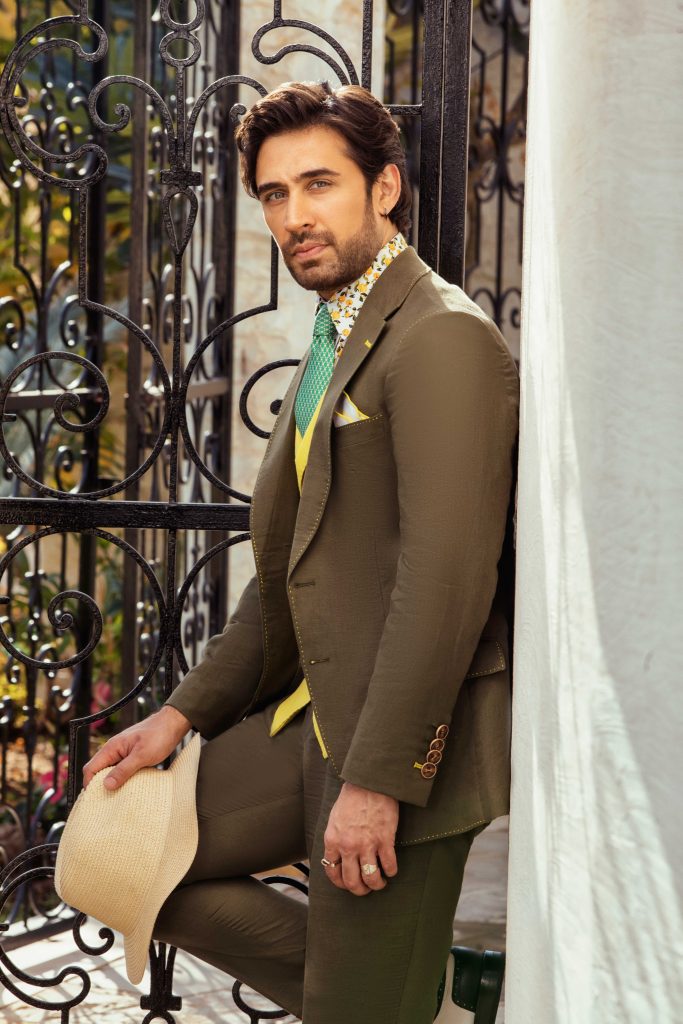 Both your films were with actress Hareem Farooq. What kind of relationship do you share with her? Do you both share a professional one or are you guys friends as well?
Both your films were with actress Hareem Farooq. What kind of relationship do you share with her? Do you both share a professional one or are you guys friends as well?
AR: Hareem and I have been friends for a very long time. I’ve known her long before she started acting in theatre. I think it was just good luck that we managed to work together as actors on two films, a drama (Diyar-e-Dil) and that she also produced Janaan. She is a lot of fun and we share great chemistry on screen, which is why people like watching us together so much. She is a very talented actor, one I can really rely on, trust and work with well.
As a producer, she’s a lot more serious and attentive to the project. One barely gets to see her around because she’s so hands on with everything. It’s not an easy job acting and producing a film, but I think she does it with a lot of finesse.
“I am my own biggest critic. I learn from my mistakes and I try to improve on certain things I feel I have fallen short on. This cycle I believe is never ending in an actor’s life, and I’m not sure if there will ever be a point where I will ever be satisfied. I do know, however, that I love challenges, and I will always work hard to break perceived stereotypes.” Can you explain this further by giving some examples from your recent work? Do you think you have broken the perceived stereotype of a hero or a leading man in films and dramas?
AR: I believe I said this a long time ago in an interview, but it still holds true for me. When I’m working on a certain character, I make sure I become the embodiment of my character. I make sure my portrayal is as honest as can be and get very close to my character’s reality – a reality that the audience can connect with. When I watch my own work, I put on several lenses to look through, to judge my own performance. I nitpick over every small detail, every gesture, every dialogue, and my co-actors and directors can testify to that. I’m never satisfied. I’m not sure if that’s a good thing, but it keeps me wanting to improve, do even better, to outdo my biggest competition… me. That’s the challenge that keeps me going and I love that feeling. Of course the modern day hero is breaking all stereotypes. The modern day hero doesn’t need to jump out of a helicopter with guns blazing while jumping on to a jeep fighting off 10 assassins. The modern day hero resides in everyday realities. Realities where people are doing something special, something unique while at the same time living super regular lives. The modern day hero is the common man. Those are the stories we read about, write about and are able to tell. Pakistan has so many stories of these amazing people that are still waiting to be told.
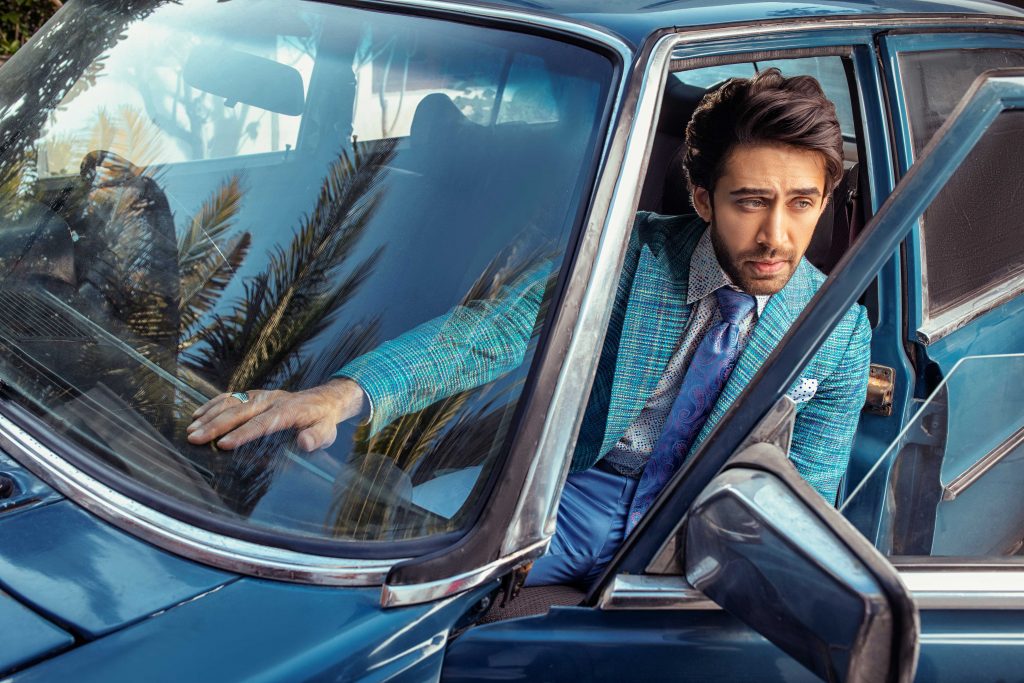 What do you think is the key to success, if any, in the Pakistani media/film industry?
What do you think is the key to success, if any, in the Pakistani media/film industry?
AR: There is no specific formula or one single key to success in the media or film industry. Just like any field or career path, to make it to a certain point an individual needs to give their 100 percent to the job and the character they are portraying. One needs to prepare for the role they take on with research and rehearsals. One needs to have discipline and follow proper work ethics. It’s important to respect all team members and colleagues they are working with, and be ready for the ups and downs – as not all projects an actor works on are going to be a hit.
I think all of that mixed with a little bit of good luck can really be critical to one’s success. One advice I give all up and coming actors is to surround themselves with like-minded people. Join a theatre group. Do school/college plays. Keep busy and use the technology you have to your advantage. Put yourself out there!
“I have seen a lot of rejection in my life and it hasn’t always been so peachy”, you said in an interview during Janaan. Can you elaborate?
AR: I’ve worked very hard towards building a career and working to maintain a reputation. I don’t take the opportunities that have been given to me for granted and I take my work very seriously. That’s because I know how hard it is to get here and how much work you need to do in order to get recognised. To me this is really a dream come true and so I have to do whatever it is to keep working harder.
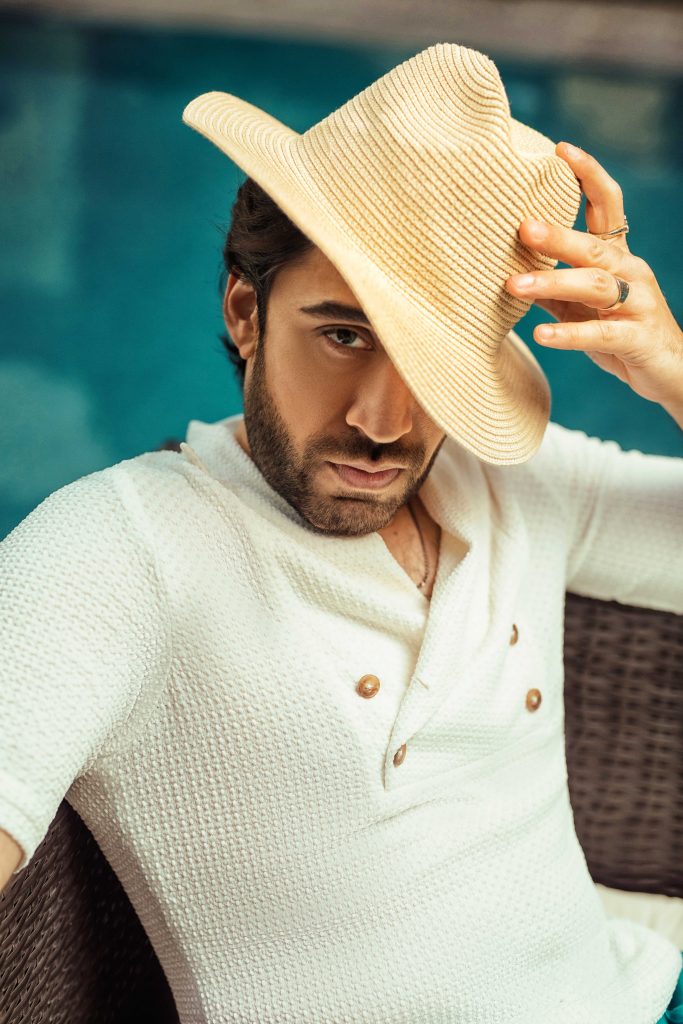 Do you take award ceremonies seriously?
Do you take award ceremonies seriously?
AR: Awards are great, as it’s always nice to be appreciated for the work you do and it feels good to be recognised for being honest with your work. That being said, I don’t work to win awards or go to award ceremonies. They’re a nice distraction and a good place to see all your friends in one place again, and of course good entertainment but I don’t take them too seriously. For me the recognition by my fans is always my number one award.
What’s next in the pipeline for Ali Rehman? Tell us about your new film with Hania Aamir. What made you choose this role? How do you usually tend to choose your roles?
AR: I’m doing Wajahat Rauf’s upcoming film titled Parde Mein Rehne Do alongside Hania Amir. The film is written by Mohsin Ali and is a comedy that also touches upon social issues in a clever way. Initially I didn’t have any expectations, as I wasn’t sure what the film was about apart from what Wajahat had already explained to me over the phone. So when I finally read the script, I was pleasantly surprised. I really liked it. It’s a very simple yet cleverly written script, and I found myself thinking about it quite a bit. It’s not every day that you read a script and go “Wow, that was amazing… I really need to do this”. I’m not allowed to reveal much about the film at this stage, but I can tell you that it’s a very sweet film and audiences will really enjoy it. Again, I’m playing a character that I haven’t done before, and it’s quite nice to go against the grain in figuring out the character.
Choosing a role isn’t hard; it’s finding a role that speaks to you within a beautifully knit story that can be the toughest. Well-written roles just find their place in your heart, and once they do it’s hard to let them go – which is why it’s so important for us to have good writers in the industry.
Another plus has been working with Hania. It’s been a lot of fun. She’s an amazing actor with so much potential. She has a passion for this and you can see that passion in every shot she delivers. We’ve always shared great chemistry ever since Janaan, and you will get to see that in this film too. Her energy is unmatched, and it’s contagious. Right now we’re on hold with production due to the Coronavirus outbreak. We don’t know when things will resume and go back to normal, but I appreciate Wajahat and Shazia being quick to shut down production when they saw the potential danger for the cast and crew.
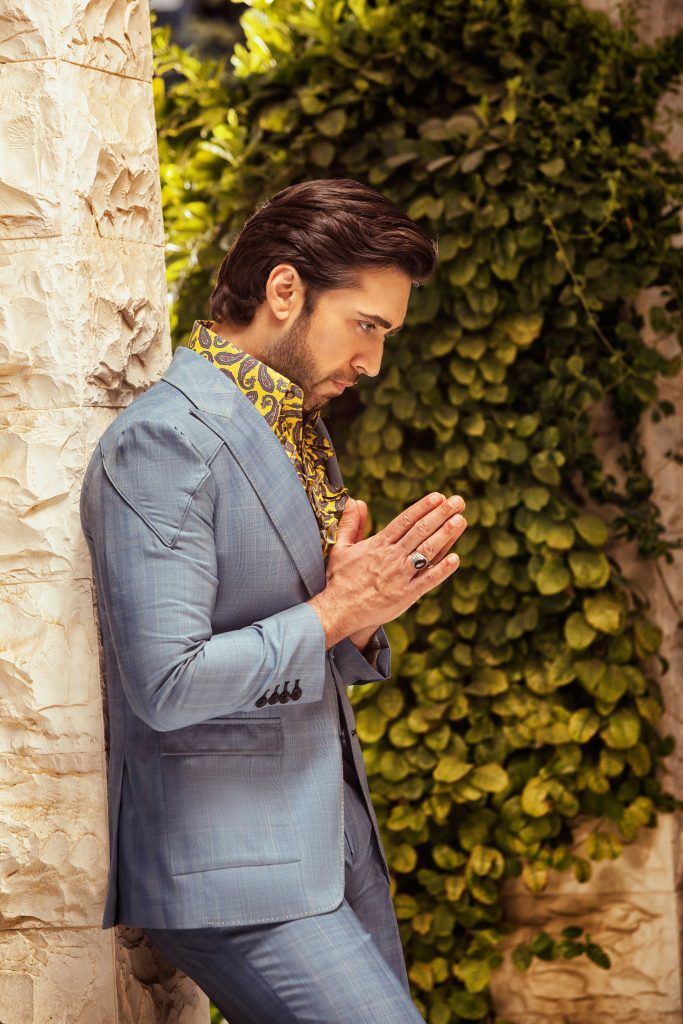 Any marriage plans? Have you met The One yet? Or are you just focusing on work?
Any marriage plans? Have you met The One yet? Or are you just focusing on work?
AR: Nope! No plans as of yet, and yes I am focusing all my energies on work. I’m not saying I’m opposed to getting married, I would very much like to. It’s just that I haven’t found anyone that will tolerate me yet. I guess that’s something that can’t and shouldn’t be forced. People find love at different stages in their lives and I just haven’t come to that stage yet. I totally believe that when you find someone, you just know. And that’s a beautiful feeling. Till then, my work is my wife, who keeps me very happy, and I’m going to make sure she stays with me forever.
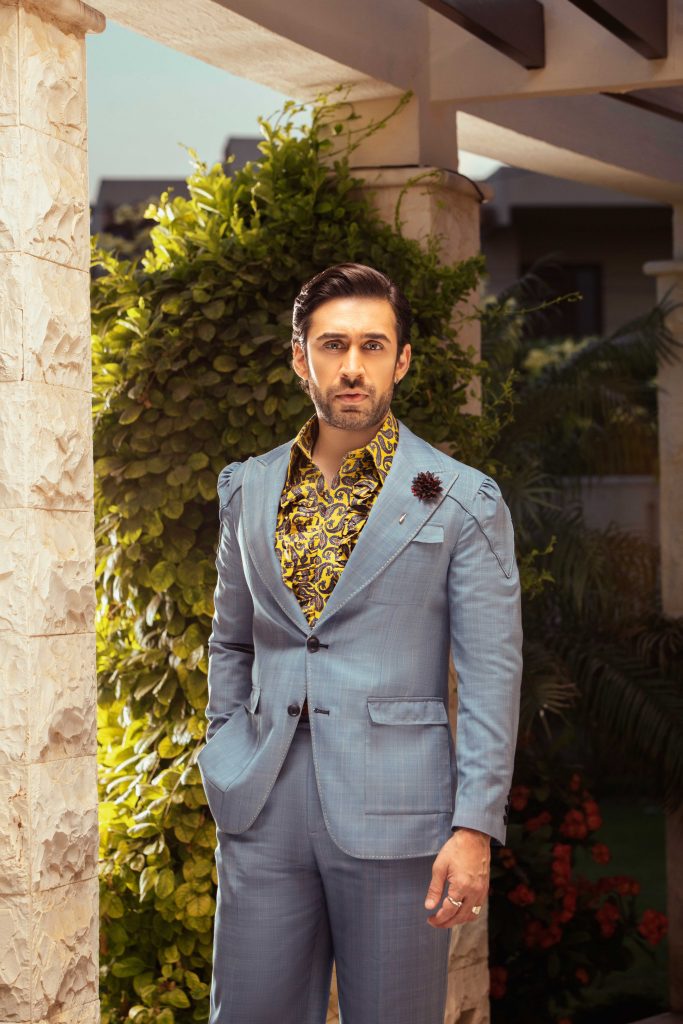 What are you upto these days? How did you spend your time in quarantine?
What are you upto these days? How did you spend your time in quarantine?
AR: Like everyone else, I’m just trying to figure out life in quarantine. It’s strange when people ask me what I do in my quarantine becuase i’m not doing anything any different than they are. We are all trying to stay as safe as we can by staying indoors in our own houses and trying to utilize the full day to its full potential by staying productive. I’ve been working on a lot of digital work from home and I’ve started cooking again, which has always been very cathartic for me. I have now started reading some scripts for when we can go back to shoot, and of course I’m trying to stay fit and healthy in this time by exercising and finding fun ways to keep myself energized. That being said, I can’t wait to get back to work. I miss being on set and doing what I do best and all this sitting at home has made me crave it even more.
Interview: Rao Ali Khan and Maira Pagganwala
Styling: Rao Ali Khan
Wardrobe: Mohtaram
Footwear: TSM and co
Photography: Hasan Habib Hashmi
Grooming: Nadeem William
![]()






